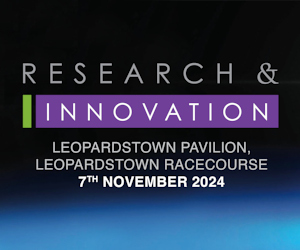Research Study on New Skin Patch Treatment For Peanut Allergy Shows Increased Tolerance to Peanuts
The results of a research study on a new skin patch treatment for peanut allergy have been released. The results of the study show that the skin patch can help children develop more tolerance to peanut.
The study was conducted in 31 centres across North America (Canada and the United States), Germany, Australia and Ireland, at both Cork University Hospital and Our Lady’s Children’s Hospital in Crumlin. In Dublin, the study was carried out by Dr. Aideen Byrne at the National Clinical Research Centre (NCRC) and in Cork, was overseen by Professor Jonathan O’B Hourihane at the INFANT Centre and HRB Clinical Research Facility University College Cork. The research in Ireland was funded by CMRF Crumlin.
Dr Byrne, Principle Investigator at The NCRC, said that this result is a welcome development for all those involved in the care of children with peanut allergy – “Peanut allergy is the most common persistent food allergy and has a huge impact on the lives of affected children and their families. Treatment options are needed. The benefit of this skin patch (epicutaneous) treatment is that it is safe and well tolerated. It is anticipated that it will play an important role in the treatment of peanut allergy in the future. Further studies are being carried out that will give us more information on the benefits of the patch. At this time the product is not licensed for use outside of a research setting.”
The study involved over 350 children between the ages of 4 and 11 years. The children had to apply a specially designed patch to their skin every day for a year. The patch either contained peanut or a placebo. The results released today show that, although not all children responded to wearing the patch, some were able to tolerate more peanut than before the study started.
Fiona O’Malley, Head of Communications at CMRF Crumlin, said the best way to find gentler treatments, faster diagnoses and someday cures for childhood illnesses and allergies is by funding medical research programmes. The children’s charity is currently funding 43 active research grants into cardiology, immunology, infection, allergies, cancer and neonatology. Members of the public who want to help support these research trials can go to www.cmrf.org/donate








